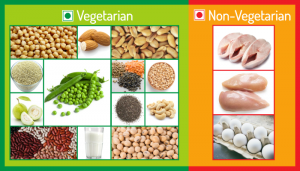M2PROTEINS KNOWLEDGE RESOURCE
Useful article on why do we need proteins & what are proteins?

Proteins:
Any food item can be broken down into macro and micro nutrients. There are three macro and several micro nutrients present in the food that we include in our diet.
The macros can be further classified as
- Protein
- Fat
- Carbohydrates
There are several micronutrients present in food and they vary depending upon the type of food. The minerals and different vitamins make up the micronutrient part of food.
Here in this blog we will focus on What are Proteins & Why do we need proteins.
Proteins make up about 42% of dry weight of our bodies. Proteins are large, complex molecules that are made up of hundreds or thousands of smaller units called as amino acids.

Proteins play significant role in human body
What are Proteins?
Proteins are usually folded into their 3 dimensional structure which determines their activity. A single cell can contain thousands of proteins with different shapes and functions.
There are 20 different amino acids that can be combined to make proteins. These amino acids can be further classified as
- Essential amino acids – can not be made by body
- Non essential amino acids– made by body
- Conditionally essential amino acids– required in case of illness or stress.
For Sale in India Only
Why do we need Proteins?
Proteins perform various functions in body. Some key functions of proteins in our daily lives are outlined here. Proteins form various hormones, enzymes, antibodies in our body which play very significant role in our day to day life.
Hormones: These are created by endocrines cells in the body. They carry out various physiological processes such as growth, development, metabolism and reproduction. Some hormones are steroid based and some are protein. Protein based hormones are called as peptide hormones, Insulin is one of them.
Enzymes: Enzymes are required to speed up chemical processes taking place in the body. These chemical processes are mostly related to digestion of food. Ex. Enzyme Protease is required for digestion of protein, Amylase is required for carbs and lipase is required for breakdown of lipids or fats.
Transport/ Storage: These protein molecules binds to or carry atoms and small molecule within cell or throughout body. Heamoglobin binds to oxygen and carry it from lungs to the rest of body.
Antibody: Proteins which are known as antibodies bind to foreign particles such as bacteria or virus and help protect the body.
Growth and repair: Amino acids are required for building muscles as well as to repair them.
Structure: These protein provides structure and support to the cells. In short they allow body to move.
- Keratins: form protective covering on vertebrates. Example. Hair, nails, fur, skin, claws
- Actin and myosin: forms muscle tissue
- Collagen: Tendons and hides
Proteins in our Diet:
We usually consume our protein via our food. Our food besides carbs and fat also contains varying levels of proteins. These proteins are carried to the intestine and digested using digestive enzymes. The quantity of proteins absorbed or made available to the body largely depends on the type of food. Here are some vegetarian and non-vegetarian sources of proteins, list below shows grams of protein per 100 gram of food that usually forms part of our diet.
Conculsion: To conclude Proteins form integral part of our daily diet and are necessary to perform various body functions. Various vegetarian and non-vegetarian food sources provide varying amount of proteins to our body. Do make sure to consume your daily recommended intake of protein using various sources of proteins to stay fit.
Products you would like to buy
References for above article
- https://ghr.nlm.nih.gov/primer/howgeneswork/protein
- https://learn.genetics.utah.edu/content/basics/proteins/
- https://www.azom.com/article.aspx?ArticleID=11177
Get Advice & Tips on Fitness, Diet and Protein Supplements direct to your Inbox.







